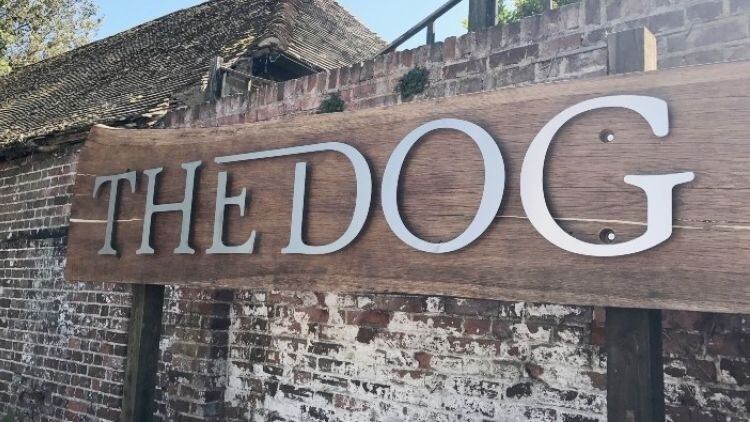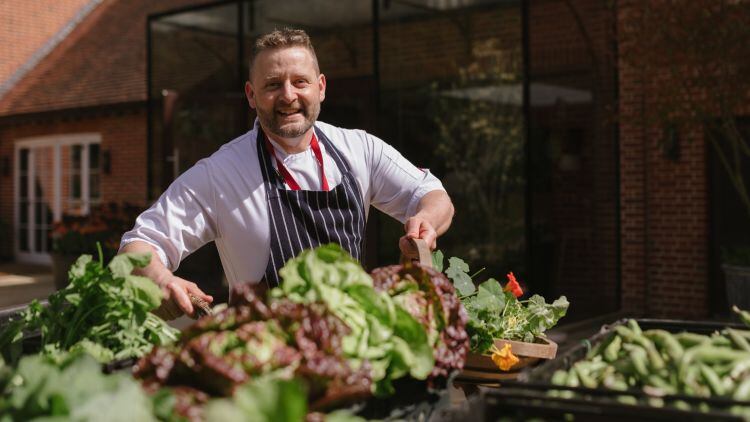- Want to learn more about sustainability? Sign up to our dedicated webinar taking place later this month here.
Operator of the Dog at Wingham in Kent, Marc Bridgen outlined how using an entire animal can help boost sustainability credentials.
Chance to address issues
Brewfitt director Curtis Paxman said: “The hospitality industry has a fantastic opportunity to enhance the sustainability of their drinks offering. By addressing plastic waste, bottle waste collection, product storage, and energy use on dispense and bottle fridges, they can significantly reduce their environmental impact. Implementing efficient recycling programmes, optimising storage practices to minimise waste, and adopting energy-saving technologies are crucial considerations.
“Identifying those opportunities, being proactive, and ensuring the right solutions are in place with minimum disruption to daily operations are fundamental to the success of driving your sustainability ambitions forward.
“A recent example includes the planned bottle return scheme initiative in Scotland. We have seen an influx of venues looking at reducing their bottle waste by opting for in-house systems like the Mr Fitz Aqua Spritz. The solution is a great example of how venues can introduce sustainability that offer operational benefits.
“To maximise sustainability efforts, it is important for hospitality businesses to seek guidance from specialists in areas such as energy optimisation, waste reduction, and sustainable practices. Consulting with dispense experts, like the team at Brewfitt, can provide valuable insights and support in achieving those goals.”
He said: “We take a very firm view on waste because of the financial impact. We are at the tail end of lamb season where we have had whole lambs in, where we butcher them and do nose to tail. It is incredible sustainable, there’s no waste and it’s a real financial bullet.
“For any business, sustainability and financial gains have to go hand and hand. We are also looking at solar [energy] and drilling a well but these things come at such a massive capital expenditure, they are difficult initiatives to push ahead.
“For us and many great British pubs, we are grade two listed so you can’t just put a load of solar on the roof.”
However, when it comes to the pub’s drink offer, keeping it local is an area the Dog focuses on, meaning its location in the ‘garden of England’ Kent, plays its part.

Championing local
“We are running a local English wine as a wine of the month, we are always championing local produce for multiple reasons. It’s rarely the financial side but it’s fewer miles and it’s local,” Bridgen added.
“The benefits are the environmental impact and sometimes there is financial gain but it’s what the public are looking for, it’s something to talk about and promote.
“It engages people on a different level. We have lots of guests who ask about local and seasonality of what we offer so it is part of our product offering and ethos.
“Doing the right environmental thing benefits the business in a plethora of ways, not always the bottom line but the other reasons you do it eventually impact the bottom line.”
Foraging for ingredients is something that can be utilised for both food and drink offers. Multi-award winning chef Tommy Banks recently revealed he forages for dishes on his menu while bar manager at Adam Handlin’s Ugly Butterfly restaurant and bar Josh Linfitt outlined how getting to know products and local environments better was one benefit of foraging.
Linfitt said: “It promotes what you have to offer wherever you live. It also influences you and inspires you to create something.
“For example, a little while back we had a wonderful cocktail on our menu, which had local samphire cooked in unsalted butter and then washed in Tequila to create a really nice twist on a Margarita.”
Chat with your suppliers
Molson Coors Beverage Company UK on-trade director Martyn Cozens said: “Chat to your suppliers – there’s a good chance they’re already operating in more sustainable ways and running initiatives that you might not know about. Working with suppliers that are focused on reducing their carbon emissions means that the brands you stock can help you to reduce yours.
“All of our products made in the UK – from brands like Carling, Doom Bar, Coors, Madri Excepcional and Aspall Cyder – have been made using 100% renewable electricity since 2021. At our largest brewery in Burton, we recover and reuse the carbon dioxide we produce as part of the fermentation process, recovering up to around 47 tonnes of carbon dioxide a day which would otherwise have been released into the atmosphere.
“It’s initiatives like these that have helped us to reduce the carbon emissions from our direct operations by more than 60% since 2016.
“Minimising waste behind the bar goes hand in hand with operating more efficiently – reducing pressure on resources and cutting costs at the same time, so it’s a good idea to invest some time getting your team up to speed.
“We offer quick and easy training videos on our customer website, covering everything from the perfect pour to cleaning lines, changing kegs and caring for your glass washer. As well as reducing waste, delivering the perfect pint every time is good for your pub’s reputation – so it’s a win-win from a business point of view.”
Progressive vision
Top 50 Boutique Hotel Heckfield Place in Hook, Hampshire has a “progressive vision”. Nestled in an eco-estate of more than 400 acres, its ethos is around the movement and rhythms of nature, with sustainability and responsibility at its core.
The venue became the first UK hotel to have its own farm estate certified 100% biodynamic in 2021.
It also has its own organic farm that follows biodynamic principles, five-acre Market Garden, orchards as well as livestock, which includes two chicken flocks, more than 50 sheep, 10 pigs and almost 60 cows.
The hotel’s Marle restaurant, which is under culinary director Skye Gyngell and executive chef Michael Chapman, has been awarded a Michelin Green Star for its sustainable dining credentials.
The ethos behind the menu is “the very best tasting food is locally and responsibly grown” with produce delivered on a daily basis from Heckfield Home Farm on the state alongside partners at Fern Verrow farm in Herefordshire.

From dedicating areas of the grounds to local produce to reducing waste, there are a myriad of opportunities where takin the environment into consideration across menus can help businesses.
- The Morning Advertiser has launched the Green Initiative, which is supported by Molson Coors Beverage Company and Brewfitt.





